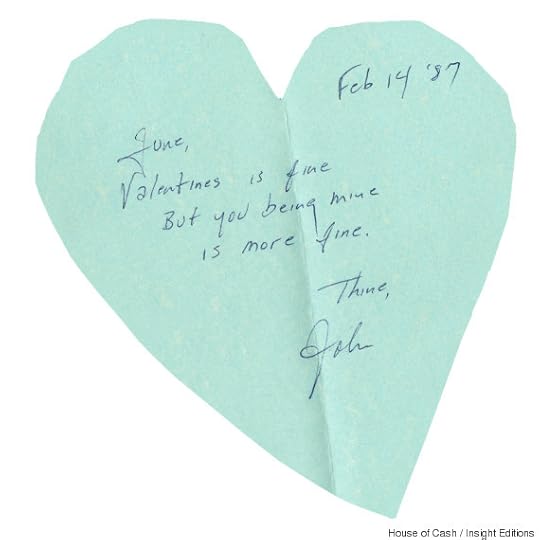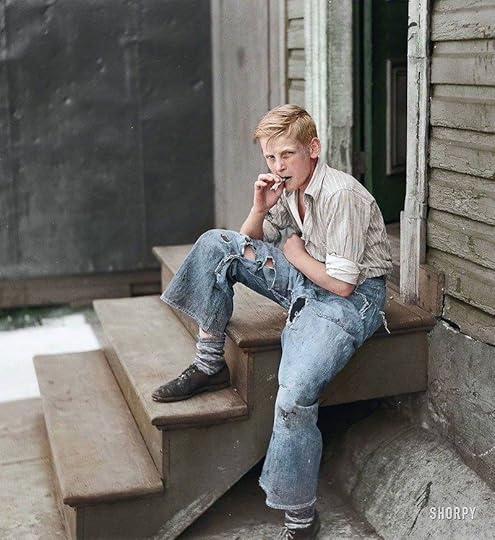Benjamin Whitmer's Blog, page 8
February 19, 2015
Guns, Books, Etc.
“Yeah, pictures of desserts and the fact that you can’t sit still for five minutes without sending and receiving texts. I mean, it does not look like any form of engagement with art that I recognize from any field. It looks like a distraction and an addiction and a tool. A useful tool. I’m not a technophobe. I’m on the internet all day, every day, except when I’m actually trying to write, and even then I’m on a computer and using, often, material that I’ve taken from the internet. It’s not that I have technophobia. It’s the notion that somehow this is a transformative, liberating thing that I take issue with, when it seems to me more like a perfection of the free market’s infiltration of every aspect of a human being’s waking life.”
My daughter sent me this. Do with that what you will.
“Fuck to this day. I mean, fuck to this day. It’s all just gonna boil up and wash us away.”
At what point can we just admit that this’d be a better country without the FBI?
Why don’t Americans know what really happened in Vietnam?
Martin Sheen drunk in the opening of Apocalypse Now.
Not to oversell this, but it’s the album of the year. Might be the album of the decade, in fact. Or the album of my life.
February 16, 2015
How Cliché Makes You a Nazi
I have this sneaking suspicion that most people, given the right historical circumstances, are capable of extraordinary evil. That comes of the belief that evil itself is usually systemic; though individual evil exists, it’s got nothing on the kind of atrocity that can come of organization and cooperation.
As such, one of my benchmark books on the subject is Hannah Arendt’s Eichmann in Jerusalem: A Report on the Banality of Evil. It’s my favorite book about evil.
And also my favorite book about cliché.
Adolf Eichmann was, of course, one of the organizers of the European Holocaust. He was also, at least according to Arendt, a man nearly incapable of thought. This is from the Wikipedia entry for the book:
Arendt’s book introduced the expression and concept “the banality of evil”. Her thesis is that Eichmann was not a fanatic or sociopath, but an extremely average person who relied on cliché rather than thinking for himself and was motivated by professional promotion rather than ideology. Banality, in this sense, is not that Eichmann’s actions were ordinary, or that there is a potential Eichmann in all of us, but that his actions were motivated by a sort of stupidity which was wholly unexceptional. She never denied that Eichmann was an anti-semite, nor that he was fully responsible for his actions, but argued that these characteristics were secondary to his stupidity.
This concept has been frequently misunderstood. In his 2010 history of the Second World War, Moral Combat, British historian Michael Burleigh calls the expression a “cliché” and gives many documented examples of gratuitous acts of cruelty by those involved in the Holocaust, including Eichmann. Arendt certainly did not disagree about the fact of gratuitous cruelty, but “banality of evil” is unrelated to this question. Similarly, the first attempted rebuttal of Arendt’s thesis relied on a misreading of this phrase, claiming Arendt meant that there was nothing exceptional about the Holocaust.
And this is Hannah Arendt, in her own words:
[Eichmann] was genuinely incapable of uttering a single sentence that was not a cliché.[…] Eichmann, despite his rather bad memory, repeated word for word the same stock phrases and self-invented clichés (when he did succeed in constructing a sentence of his own, he repeated it until it became a cliché) each time he referred to an incident or event of importance to him.[…] The longer one listened to him, the more obvious it became that his inability to speak was closely connected with an inability to think, namely to think from the standpoint of somebody else. No communication was possible with him, not because he lied but because he was surrounded by the most reliable of all safeguards against the words and the presence of others, and hence against reality as such.
The point being, at least to me, that there’s a danger to cliché, beyond bad writing. Particularly to unexamined cliché. It’s like what Ron Sukenick wrote in Down and in: Life in the Underground, “’Use your imagination,’ I tell my students these days, ‘or someone else is going to use it for you.’”
Clichés do your thinking for you, and the worst of them are invisible. I liken it to when people tell you something’s common sense. What they really mean is, hush, you can rest easy now, all the thinking’s been done on this topic. It’s a way of asking you politely to turn your brain off.
As a writer, I’m not trying to suggest that cliché is entirely avoidable. Hell, I’m not even sure avoidance of cliché is always desirable. There are character specific clichés that are necessary, and every genre — including literary fiction — has its own set of clichés you work within. (In fact, I’m pretty sure that a tendency towards unexamined cliché is probably good for sales, in that they’re comforting.)
But I think Arendt’s right that we need to push on them whenever possible. And whenever I get one handed one — either in a book or across a cup of coffee — I always wonder what it is that it’s working to obscure.
And whether the person giving it to me even knows they’re doing it.
February 14, 2015
Happy Valentine’s Day
February 11, 2015
Quote
From Thomas Ligotti’s brief overview of Thomas Metzinger’s theory of consciousness in The Conspiracy Against the Human Race: A Contrivance of Horror.
At the forefront of current studies in selfism and egology, the field of neuroscience has made unmistakable headway. In Being No One (2004), for example, the German neurophilosopher Thomas Metzinger provides a theory of how the brain manufactures the subjective sense of our existence as discrete “selves,” even though, as Metzinger explains, we would be more rigorously categorized as information-processing systems for which it is expedient in an existential sense to create the illusion of “being someone.” In Metzinger’s schema, a human being is not a “person” but a mechanistically functioning “phenomenal self-model” that simulates a person. The reason we cannot detect these models is that we see through them, and so cannot see the processes of the models themselves. If we could, we would know there is nothing to us but these models. This might be called “Metzinger’s Paradox”: You cannot know what you really are because then you would know there is nothing to know and nothing to know it.
December 3, 2014
Harry Crews on his Critics
So, the dumbasses out there that are watching television until they are rotting in their souls, watching Walter Cronkite and Happy Days, who cannot read my fiction, and say that it’s gratuitous, I say they have no eyes, no ears, no heart, no mouth, no sympathy, no charity for the human predicament. And they think that the human predicament and situation is living over in suburbia with a high wall around yourself and worrying about your annuities and your tax-sheltered income.
And:
The reading public bothers me, though. They don’t want to read about the blood and bones and guts of an issue. They want to read about something they’re not going to have to think about, and if it does hurt them, as say Love Story does, it won’t last very long. What has happened in this country is a failure of the imagination.
And best of all:
Contrary to popular belief, I’m not a violent person. But if you wrong me, I’ll kill your fucking ass, and I’ll spend the rest of my life in jail. I’ll kill your fucking ass and you can count on it; depend on it.
October 31, 2014
Writing Advice from James Lee Burke
Thanks to Ben Sobieck, whenever anybody asks me to sign a book with writing advice — or sometimes when I just feel like it — I’ve been signing ‘em with the inscription, “Leave hair on the walls.”
Which I’m pretty sure has confused some people. But they really oughtta know better than to ask me for advice on anything.
Anyway, for clarity’s sake, I stole it from this passage in James Lee Burke’s Swan Peak.
Quince tried to make sense out of what was happening to him. Only seconds earlier, he had been the “new” Quince Whitley, in control, dressed like a gunfighter, painted with magic, the giver of death. Now he lay in a parking lot, his skin burning, far from the place of his birth, a girl – no, a bitch – and a half-breed staring down at him, their faces dour with disgust and loathing, not because of what he had tried to do but because of what he was – a failure, unwanted in the womb, despised at birth, raised in a world where every day he had to prove he was better than a black person.
What does a Whitley do when he doesn’t have anything else to lose?
He could almost hear his uncle’s voice: “That one’s easy, boy. Leave hair on the walls.”
That may not make a thing clearer, but I stand by it as the best writing advice I could possibly give.
October 22, 2014
The 14 Best Country Songs About Writing
About a million years ago I spent weeks in CU’s Women Poets of the Romantic Period collection, getting paid eight dollars and hour to find and transcribe examples of poetic manifestos. (Don’t ask.) For some reason, I was thinking about it the other day, and thinking about country music. And it occurred to me how many country songs are a kind of poetic manifesto themselves. Or, at least, how many I think are.
So I made this list last night during an insomnia attack. To be honest, it ain’t probably the best 14 (15 now, thanks to Stephen Graham Jones) country songs about writing. But it’s the best that came to mind at 2:30 this morning when I was too wiped out to read or write and too wired to sleep.
Kris Kristofferson — If You Don’t Like Hank Williams
“You’re the only one that you are screwing, when you put down what you don’t understand.”
[There is a video that cannot be displayed in this feed. Visit the blog entry to see the video.]
Johnny Cash — The Folksinger
“All the truths I tried to tell you were as distant to you as the moon.”
[There is a video that cannot be displayed in this feed. Visit the blog entry to see the video.]
Bill Anderson — The Songwriters
“We get to tell all of our secrets in a code no one understands.”
[There is a video that cannot be displayed in this feed. Visit the blog entry to see the video.]
Iris Dement — Living On The Inside
“I been living on the inside too much.”
[There is a video that cannot be displayed in this feed. Visit the blog entry to see the video.]
Billy Joe Shaver — I Don’t Seem To Fit Anywhere
“Nobody quite got the drift of my songs, like me they’re a bit overdone.”
[There is a video that cannot be displayed in this feed. Visit the blog entry to see the video.]
Waylon Jennings — My Heroes Have Always Been Cowboys
“Picking up hookers instead of my pen, I let the words of my youth fade away.”
[There is a video that cannot be displayed in this feed. Visit the blog entry to see the video.]
Willie Nelson — Write Your Own Songs
“Just lay on your ass and get richer, or write your own songs.”
[There is a video that cannot be displayed in this feed. Visit the blog entry to see the video.]
Emmylou Harris — Old Five and Dimers Like Me
“I spent a lifetime making up my mind to be more than the measure of what I thought others could see.”
[There is a video that cannot be displayed in this feed. Visit the blog entry to see the video.]
Jamey Johnson — That’s Why I Write Songs
“You see, it ain’t just what I do. It’s who I am.”
[There is a video that cannot be displayed in this feed. Visit the blog entry to see the video.]
Sturgill Simpson — You Can Have The Crown
“They call me King Turd up here on Shit Mountain. If you want it you can have the crown.”
[There is a video that cannot be displayed in this feed. Visit the blog entry to see the video.]
David Allen Coe — You Never Even Called Me By My Name
“I realized that my friend had written the perfect country and western song.”
[There is a video that cannot be displayed in this feed. Visit the blog entry to see the video.]
Guy Clark — Some Days The Song Writes You
“It don’t matter how much it hurts, you got to tell the truth.”
[There is a video that cannot be displayed in this feed. Visit the blog entry to see the video.]
Jamey Johnson, Willie Nelson, Merle Haggard, Hank Cochran, Kris Kristofferson — Living For A Song
“All of us rhyme runners and word hunters have things we’ve been through.”
[There is a video that cannot be displayed in this feed. Visit the blog entry to see the video.]
Charlie Louvin — Ira
“You had a way with writing music from the heart.”
[There is a video that cannot be displayed in this feed. Visit the blog entry to see the video.]
Lacy J Dalton — 16th Avenue (via Stephen Graham Jones)
“Like a miracle some golden words, rolled off of someone’s tongue.”
[There is a video that cannot be displayed in this feed. Visit the blog entry to see the video.]
October 17, 2014
Noir Walk
For those who’ve expressed interest: The Denver Noir Walk on the evening of October 24th is on. We’re doing it on the side, though, as a dry run for Lit Fest 2015. The way it should be, right? Unofficial and a little shady? If you’re interested, send me an email and I’ll have my guy shoot you the particulars.
Also, if you haven’t seen it, I wrote a piece about the dedication to Cry Father over at Elizabeth A. White’s place.
October 9, 2014
October
Well, I just realized that I haven’t posted anything much since Cry Father was released. And, not only that, my October is packed with related events, and I should probably tell some people about them, in case anybody wants to show up.
So . . .
October 11: If you’re a bookseller, I’ll be at the MPIBA Fall Discovery Show, so you’ll get to laugh at me trying to mumble-pitch Cry Father in a speed-dating format. I really like the idea, even as I’m hoping I don’t crash and burn.
October 13: I’ll be meeting with some folks in a book club in Stapleton who have taken on Cry Father. Which I’m really looking forward to. Speaking of, if you have a book club in the area, I am housebroken and promise not to eat all your cheese cubes. It had never occurred to me that anybody want me in their house for that kind of thing, but if you do, I’ll be there.
October 15: I’ll be at the Jefferson County Open School in the afternoon. From 12:30-1:00 PM I’ll be helping out in the student writer’s workshop, and then from 1:00-2:00 PM the venue will open up to the entire community and I’ll talk some about noir.
October 20: We’ll be beginning the next session of the 8 Week: Intermediate/Advanced Novel Workshop at the Lighthouse Writer’s Workshop. There’s still a couple of slots left, I think, if anybody wants in.
October 24: This one’s a little tentative, but I think we’ll be taking our first Noir Walk after the Friday 500 at Lighthouse. If you’re interested, the plan as I understand it is to meet at Lighthouse at 7:30. It’ll be hop alley, hard bop jazz, and a whorehouse. You can’t go wrong. (I’ll update to confirm and add details on this one.)
October 25: I’ll be talking Cry Father at Lighthouse for the Writer’s Buzz: The Story of a Book, 5.0. Drinks and snacks start at 6 PM, the rest of it gets underway at 7 PM.
Also, Cry Father’s gotten a lot of really kind book reviews since I posted last. My memory’s no good, so I won’t remember them all, but the Dayton Daily News, Bookreporter, and Book-Alicious Mama have weighed in, among others. There’s also a piece about the locations in Cry Father up at Crimespree Magazine, and the ever-brilliant Amanda Gowin threw some fantastic questions at me the other day. (And if you haven’t yet, get yourself a copy of Ms. Gowin’s Radium Girls. It’s fantastic.)
That’s all I got for now. It’s been a pretty exciting few weeks since Cry Father was released, and it looks like we’re just firing up.







